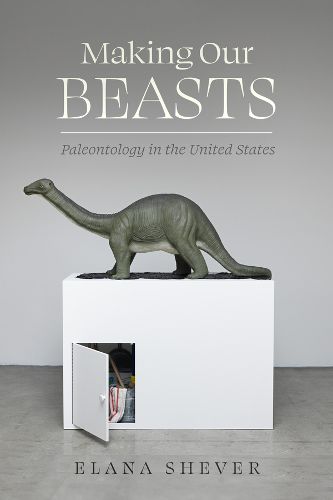Readings Newsletter
Become a Readings Member to make your shopping experience even easier.
Sign in or sign up for free!
You’re not far away from qualifying for FREE standard shipping within Australia
You’ve qualified for FREE standard shipping within Australia
The cart is loading…






A free ebook version of this title is available through Luminos, University of California Press's Open Access publishing program. Visit www.luminosoa.org to learn more.
Making Our Beasts is an ethnography of science-in-action that uses a familiar topic-dinosaurs-to lead readers to understand science and its objects in new ways. Through fieldwork and interviews conducted at laboratories, dig sites, museums, and entertainment sites, Elana Shever explores vertebrate paleontology in the United States, showing how the practices of scientists and the materiality of fossils together shape the social world and also are shaped by it. The book foregrounds elements of scientific inquiry that have been sidelined: affect, touch, material agency, and the labor of volunteers, technicians, and other nonscientists. It also reveals how paleontology continues to be structured by race, gender, and colonialism.
$9.00 standard shipping within Australia
FREE standard shipping within Australia for orders over $100.00
Express & International shipping calculated at checkout
A free ebook version of this title is available through Luminos, University of California Press's Open Access publishing program. Visit www.luminosoa.org to learn more.
Making Our Beasts is an ethnography of science-in-action that uses a familiar topic-dinosaurs-to lead readers to understand science and its objects in new ways. Through fieldwork and interviews conducted at laboratories, dig sites, museums, and entertainment sites, Elana Shever explores vertebrate paleontology in the United States, showing how the practices of scientists and the materiality of fossils together shape the social world and also are shaped by it. The book foregrounds elements of scientific inquiry that have been sidelined: affect, touch, material agency, and the labor of volunteers, technicians, and other nonscientists. It also reveals how paleontology continues to be structured by race, gender, and colonialism.